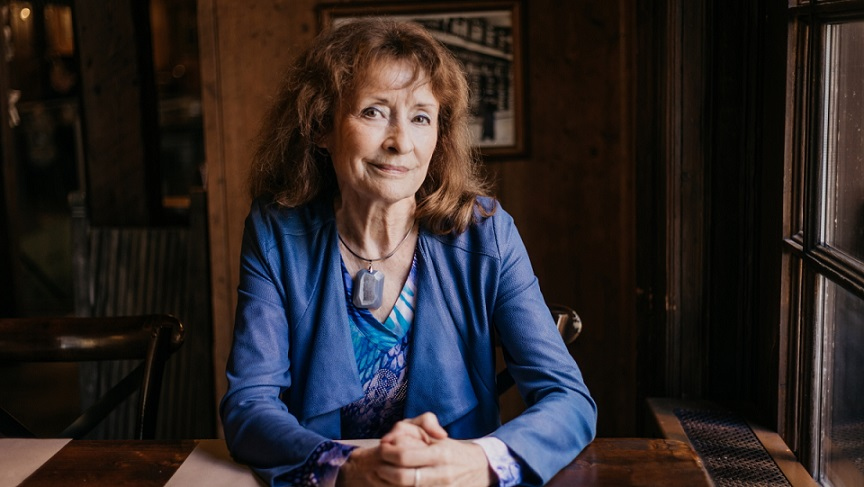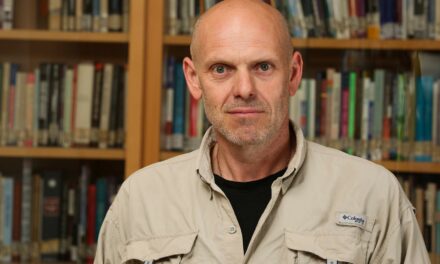"A national invasion is taking place here, carried out by organizations without a nation, belonging to the financial world," Katalin Kondor quotes Imré Makovecz in relation to the unfortunate conditions in Budapest.
Life is a cabaret, says the even more famous theme song of the famous film. And the person who reminded me of the song was none other than a taxi driver from Budapest, who explained in a long presentation and very logically the impossibility of transportation and everyday life in our capital, as he sees it. “It's a cabaret going on here, believe me,” he said.
We didn't argue, we just added to it, it's more of a sad game. At night, he took our small group home, and in the meantime he just listed and listed the complete chaos of our capital's traffic regulations, the stupid painting, the life-threatening lane markings, the renovations he unleashed on us without expertise, and he added all this with the complaints of his foreign passengers, who also told him, that over there, in the cultured and bike-friendly West, it is unthinkable that professionals would tolerate so many rule-breakers on the sidewalks as well as cyclists and scooter riders speeding back and forth in their own designated lanes.
I don't know what they tolerate in the cultured West and what they don't, let that be their business, we've come a long way from the time when we swooned and admired everything that happened over there.
However, it is not worth arguing that the everyday life of the capital cannot, to put it mildly, be called worthy of a Budapest that is admired by many people in the world, not to mention the people living in the countryside. On the other hand, those who live and work in the capital, or somewhere in the immediate vicinity, suffer the consequences of stupid, thoughtless decisions and rules every day.
And also that decisions are often ulterior motives, incompetence, and greed. This is not a new problem, just like the fact that city leaders and policy makers in most cases do not look at the interests of the community, of the Hungarian people, but at their own.
It's been a decade and a half, but it may be even longer, that in an interview with Imre Makovecz, the famous architect literally said: "Here, a national invasion is taking place, which is carried out by organizations belonging to the financial world without a nation."
It was not worth arguing with Imré Makovecz in this regard either, he saw the situation of architecture and urban planning so well. We all know - and of course this is also the game of the non-existent chance - that he, who showed his genius in many places around the world and at exhibitions, because he conjured up fantastically beautiful buildings and public spaces, could barely kick a ball here, especially in Budapest, in Hungarian there are few buildings designed by him in the capital.
To put it more honestly: Budapest did not need Makovecz. And this is no accident.
The famous specialist never hid his opinion. When the Hungarian capital won the right to organize the World's Fair, it had to live with the fact that one of the political circles did everything to prevent us from having a World's Fair.
It didn't happen. In Seville, however, he achieved enormous success with the Hungarian pavilion he designed. in 1992. And after that, he said many times, if the world exhibition was not canceled in Budapest, the capital would not look like it does today. Then the roundabouts - not one, but several - would have been built, and there would not be the traffic chaos that characterizes the city today.
It would be difficult to argue with his thoughts, especially if we recall that some people here did not even want the Olympics, and nothing came of the idea. At least now we are holding the World Athletics Championships, a beautiful stadium has also been built, but he can no longer see it.
I talked to Imre Makovecz shortly before his death. I was surprised by what he said, that foreign businessmen are buying up Budapest: "We sold our avenue leading to Hősök ter, Andrássy ut, where the architects and designers who deal with the reconstruction work of the individual palaces complain one after another that their clients do not pay them. We live in such a world. Budapest is a world of dirty scumbags, a transport failure. The basic question is why sell everything? The real estate is not being sold because the Hungarian state has no money. The game goes to your pocket, that's part of it. From a different perspective, the transformation of society and politics serve the purpose of ensuring that the Hungarian entrepreneur does not stay afloat, but becomes an employee. And that the international financial world, which drives social transformations everywhere, should be in an entrepreneurial and decision-making position. This is an international trend that I'm talking about now."
Well, the interview, a part of which I just recalled, was made 15 years ago. Imre Makovecz died in 2011. Everyone who knew him knew about him, he never complained, he always spoke honestly. I quote the closing sentence of the interview as proof of this. Not everyone will like it. "I see only one solution. This servile layer, advanced from Muscovite to Brussels, must be disturbed the hell out of it. The time for talking is over.”
And this writing was born because in the last few days I visited the Paks church, the Százhalombatta church and Makó's spa, the Hagymatikum, within three or four days while traveling around the country. All were designed by Makovecz. It was a heart-warming experience. For a few hours I forgot the sad game, the reality of the capital.













